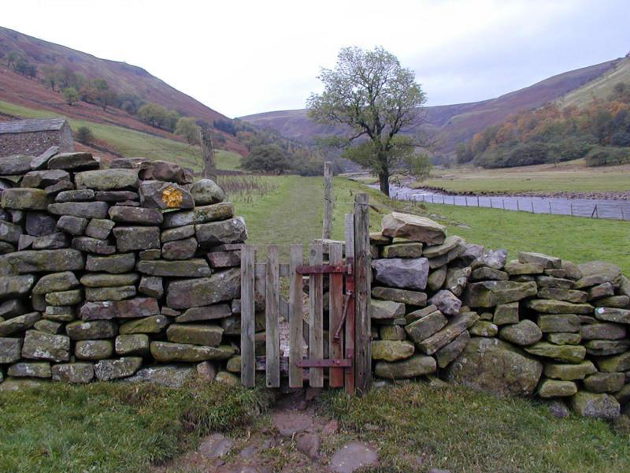“Something there is that doesn’t love a wall…”
This is the first line of the poem, “Mending Wall” by Robert Frost. Nearly all of my scholars were reading this poem for the first time. As the audio of the poem played, and I looked around my classroom, I could immediately see a shift in body language as my scholars began to associate this Robert Frost poem with their experience with immigration. Many shared their own personal struggles with feeling targeted and unwanted in this country.
It broke my heart to see and feel my scholars’ pain and anguish of feeling unwanted, but we pushed through the hurt and anger and engaged in some great dialogue and analysis.
My scholars questioned why people put up walls in the first place even when there’s no real reason to do so. Or is there ever a reason? The poem itself introduces a quality that I love when trying to engage my scholars in meaningful content: complexity.
Robert Frost is openly cynical about the effectiveness of walls, complaining about the gaps “at spring mending-time,” which appear even if “No one has seen them made or heard them made.” Yet, as my scholars so inquisitively pointed out, he isn’t unwilling to join with his neighbor to “set the wall between us once again.” He will help to rebuild the wall, even as he confides in us that it is all “just another outdoor game.” These lines made my scholars think about how so many young people submit to peer-pressure, or how people don’t live out their truth; they instead try to be something they are not all in the name of fitting into societal norms.
My scholars’ interpretation of “good fences” dominated much of the discussion and their thoughts on the U.S./Mexico border. My scholars believed that one of the implicit assumptions of the poem is that all would be well if certain people stayed in their place and “others” stayed out. Of course, the fence in the immigration debate is much more than geographical. My scholars truly do see the world we live in as a melting pot of various languages, customs, and cultures.
The final lines of “Mending Wall” sparked the biggest, contentious and most intense reaction to the poem by my scholars. These forthright and forceful lines come near the end, when the narrator drops some of his gentle mockeries to reveal why, exactly, he is reluctant about this enterprise:
“Before I build a wall I’d ask to know
What I was walling in or walling out,
And to whom I was like to give offense.”
My scholars explained that this country is quite intentional and knows exactly whom to “wall in” and whom to “wall out”, and our leaders do not mind giving offense. They named Muslims and Mexicans as those that are being “walled out.” As the dialogue continued, so did the tension in my classroom. Frost is definitely putting his finger on the pulse of our society right now as well as people’s fears, but just as immigration is more complex than some would have it, so is this poem. First of all, Robert Frost isn’t entirely against fences. After all, he’s the one who alerts his neighbor that the wall needs mending and he helps him mend it.
The difference between the two men is that the speaker reflects on the issue of boundaries. A small number of my scholars believe there may be a role for a “fence”, but we need to examine what that role is. Frost reminds us that the desire for fences goes deep and that logic can’t touch it. People’s fears are primordial. Some of my more optimistic scholars see Frost as providing us a vision of how to work together on the “fence” side-by-side, which is at least a step. One of my scholars said, “If we worked together, as a community, there’s the possibility for real change and to end racism Miss Jay.”
If we have worn “our fingers rough” working on boulders with our neighbors, even those we don’t agree with, then maybe that’s a message of always trying to keep the dialogue open and not to allow our own biases and prejudices to interfere with progress (racial equality) in this country.
So what is the answer? There are just some things poetry can’t solve. Frost’s “Mending Wall” ends on the conviction about “good fences making good neighbors,” making the entire poem a self-reflecting commentary on humanity and how we honor or dishonor diversity.
Truth be told, to wall off is an ancient human instinct, deeply rooted in our country’s turbulent immigration history, and there is no use in pretending that we’ve transcended that desire.
I really enjoyed this discussion with my scholars. My little ones displayed an increased awareness of the repercussions of anti-immigrant discourse and bias on a topic that they were really passionate about.
So the question still remains, is there ever a time where “good fences make good neighbors?”










Comments 2
What a timely blog and a great connection with Robert Frost! One of the phrases that kept jumping out to me was “Good neighbors.” Good neighbors watch out for each other’s houses. Good neighbors loan each other a cup of sugar. Good neighbors have a relationship with one another and trust. Good neighbors come together in a time of tragedy. Good neighbors work to make the neighborhood better. I feel that the wall that many people want built will prevent us from being good neighbors with our neighboring countries.
Thanks Donnie and I agree. The phrase itself “good fences, make good neighbors” is almost like a walking contradiction Why would we want to put up fences around our “good neighbors.” You can’t impact positive change by walling out those that you think are different than you. It is those differences that make us unique and a better country. It is those differences that make us focus on things greater than ourselves.
Why would we want to put up fences around our “good neighbors.” You can’t impact positive change by walling out those that you think are different than you. It is those differences that make us unique and a better country. It is those differences that make us focus on things greater than ourselves.